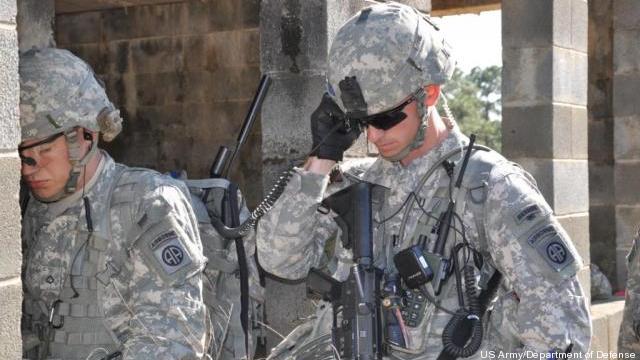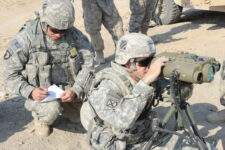 Washington: Time has officially run out on the Army’s Joint Tactical Radio System.
Washington: Time has officially run out on the Army’s Joint Tactical Radio System.
The Army will release its proposals request for a new handheld network radio to industry next month, the service’s top uniformed acquisition official Lt. Gen. Bill Phillips said.
Army and Pentagon officials decided to nix the Boeing-built JTRS Ground Mobile Radio earlier this month. The new proposals request will formally kick off the radio replacement effort.
“There are a number of industry partners out there that can deliver” a GMR replacement Phillips told members of the House Armed Services tactical air and land subcommittee yesterday.
“At the end of the day, this is positive for us,” Phillips added during the hearing. “We will get this radio quicker [and] it will be at a lower cost.”
However the Army will not cancel the JTRS contract with Boeing immediately, Phillips noted.
Acquisition officials will do a “graceful termination” where the Army will not renew its deal with Boeing and let the contract “terminate on its own,” he added. The company’s deal with the Army is set to expire next March.
Army engineers will use the lessons learned from their work on GMR on whatever follow-on radio system it chooses, Phillips said. This falls in line with the “platform agnostic” approach the Army is taking with the GMR replacement and the rest of its networking strategy.
The service does not care what kind of hardware it uses to communicate with troops in the field, Lt. Gen Robert Lennox, chief of the Army office in charge of funding service programs told me after testifying yesterday. As long as the radio replacement can carry the two critical waveforms in the Army’s network plan — the Soldier Radio Waveform (SRW) and Wideband Networking Waveform (WNW) — service officials will be satisfied, Lennox said.
Service leaders hope to have a network radio prototype ready for testing at the Army’s Network Integration Exercise later this year, according to Phillips. The next NIE is scheduled for November at the Army’s White Sands Missile Range in New Mexico.
Information gathered at the last NIE trials led to the cancellation of the GMR, Army acquisition chief Heidi Shyu told attendees at the U.S. Army Association’s annual conference earlier this month.
The Marine Corps is working its own GMR replacement plan, based on current communication systems, modified “on the battlefield” by combat units deployed in Iraq, Afghanistan and elsewhere.
Army eyes TBI monitoring, wearable tech for soldiers in high-risk billets
“We are also looking at what additional personal protective equipment we can provide to our folks, especially instructors and others who are routinely exposed to blast pressure,” said Army Secretary Christine Wormuth.


























